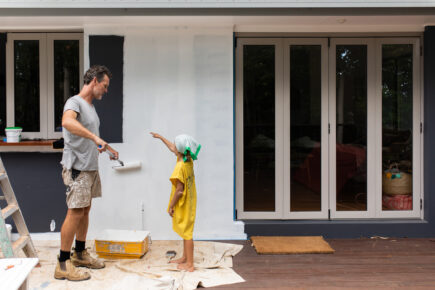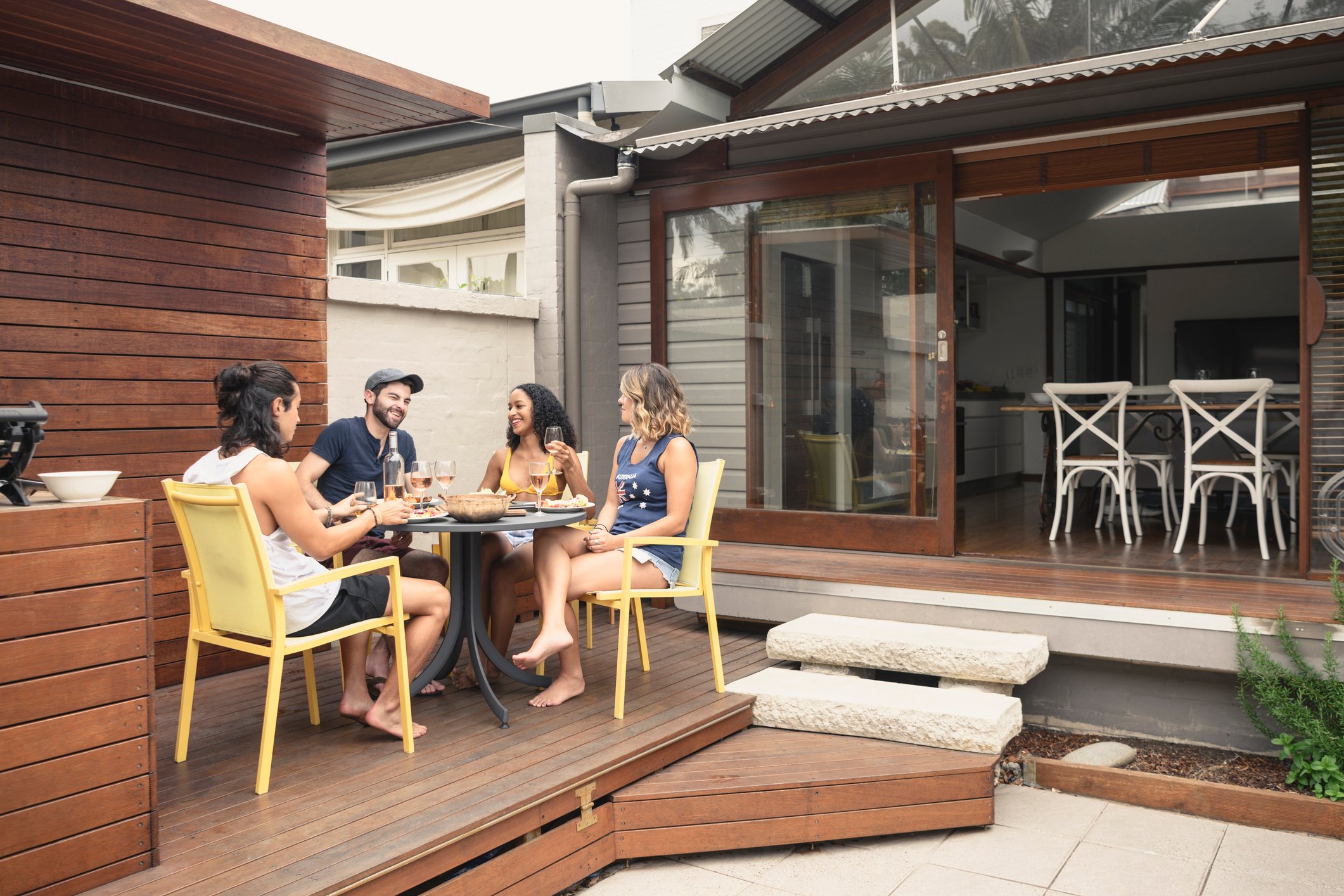The term ‘share house’ typically refers to a rental property where multiple tenants live together and share common spaces such as kitchens, bathrooms and living rooms. Tenants in a share house also split costs, including rent, bills and even groceries.
Share houses are common among students, young professionals and others seeking affordable accommodation.
The term often describes renters who do not live with their parents. However, certain arrangements — such as a family of five who rent their home — are not typically referred to in this way.
» MORE: Renting vs buying in Australia: Which is best for you?
How do share house agreements work?
Each share house will operate with slightly different agreements based on different conditions.
Contract and rent
Each state and territory uses slightly different terminology regarding tenants and the rental contract (also known as a lease). Having every tenant on the contract is the best practice to ensure you follow the right procedure.
The landlord may split the rent between specific rooms or amongst the tenants, or the entire rent for the property may be divided based on other factors. For example, the tenant occupying the master bedroom with an ensuite may pay more than the other tenants.
The way you pay your rental bond and divide up the rent will depend on the agreement among your housemates. Like all housing agreements, it’s important to understand these before moving in.
» MORE: Can you pay rent with a credit card in Australia?
Bills
Like rent, utility bills and Wi-Fi may be split evenly among the tenants or based on other factors. For example, if one tenant works from home and requires high-speed internet, they may pay more of the Wi-Fi bill.
Maintenance
Tasks such as cooking, cleaning and gardening are usually agreed upon as a group rather than through an official lease or contract with your landlord.
Co-renting
Co-renting is the specific term for when all the renters co-sign a lease/rental agreement and have equal responsibility to pay rent and maintain the property.
Sub-letting
Subletting is when a tenant rents part or all of the property to another person. The tenant remains the landlord’s tenant and is still responsible for the tenancy, including the actions of the person you are sub-letting to.
For example, let’s say you are a student living in a shared house with two roommates and a co-signer of the lease. You get an exciting opportunity to go on a one-month internship overseas. However, you cannot afford to pay four weeks of rent while you are away. You may decide to sublet your room for the month when you are away. The person subletting will pay you weekly rent, which you then pass on to your landlord.
It’s important to reinforce that you are responsible for the sublet. Even if they damage the property or don’t pay your rent, you are still responsible for fulfilling the terms of your lease. So, always screen who takes your room carefully.
🤓 Nerdy Tip
You may need written consent from your landlord to sublet your room. Check your contract and speak to your landlord before looking for a sublet.
Is living in a share house right for you?
Advantages
- Affordability. Many renters are attracted to share houses as the cost to rent one room in a sharehouse is typically much less than renting their own flat or townhouse. The same principle can be applied to other expenses such as Wi-Fi. In this case, you only need one Wi-Fi connection for the whole house, which you can split amongst your roommates, rather than paying individually if you live alone.
- Community. Many tenants like a sense of community. As a student or young professional, living with friends or housemates who share common interests can be a bonding experience and help to foster long-term relationships.
- Flexibility. Depending on your contract, renting a single room in a shared house, townhouse or apartment may give you more flexibility than being responsible for a whole property. Also, should you choose to move out, finding a replacement for one room rather than a whole house can be easier.
Disadvantages
- Conflict. Living in close proximity with housemates means there is the potential for conflict over a range of things such as tidiness, cleanliness and noise. These issues may be difficult to resolve when everyone has their own individual standards and values.
- Unfair sharing of responsibilities and costs. It can be difficult to divide the responsibilities of the ongoing maintenance and costs of a shared house. Everyone has their own schedule, and this makes it difficult to divide jobs such as cleaning, gardening and shopping, which can also lead to disagreements.
- Lack of privacy. In a shared house, your bedroom is likely your only independent space, which can make it difficult to maintain a sense of privacy.
Other important considerations
- Who you’re living with. The most important factor is knowing who you will live with. They don’t have to be your best friend, but it’s important you understand the rules and standards of living together, such as paying bills and being clean.
- Your contract’s terms. It’s also important to read your contract carefully to understand your responsibilities.
- The state of the property. Before you move into a shared house, it’s vital to inspect it. Determine if it’s safe and clean and what facilities it has. For example, a house shared by four people with only one bathroom might be a deal breaker for you. Or, the bedroom may not have enough storage for your personal belongings. So, as with any rental, you should take a thorough look at the place before you move in.
» MORE: How much rent can you afford?
How to find a share house
There are two common strategies for finding a share house:
- Searching as a group for a whole house. You can search for an entire rental house if you have an organised group you intend to move out with. You can also search real estate websites, apps or physical offices for options (including private rentals).
- Getting a single room within a shared house. If you’re an individual wanting a room in a shared house, search real estate websites, flatshare websites, or social media groups and talk to people you know.
DIVE EVEN DEEPER

Can You Renovate An Apartment?
Renovations can improve your quality of life as a homeowner and increase the value of your property. But for apartment owners, gaining strata approval is a challenge.

When One Partner Owns the House
Here’s what you need to know about property settlements, joint registration, sole registration and cohabitation agreements.

Joint Tenancy vs. Tenancy In Common
Buying a house is always complicated, but getting the ownership agreement correct from the outset can help your future self avoid headaches and hassles.

Rent Assistance: What It Is And How To Get It
If you are struggling to afford rent, you may be eligible for rent assistance from the government.

